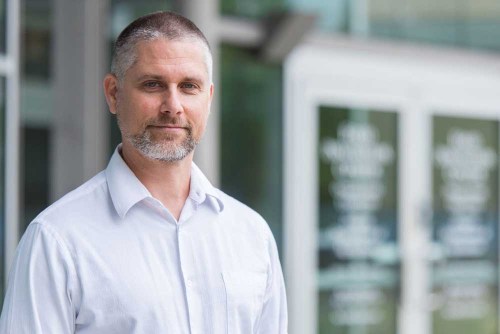OSU College of Ag Sciences expands international programs
Published 6:00 am Saturday, October 29, 2022

- Dave Stone is the first-ever dean of international programs for Oregon State University’s College of Agricultural Sciences. He starts the new role Tuesday, Nov. 2, 2022.
CORVALLIS — Oregon State University’s College of Agricultural Sciences soon will expand international research, teaching and outreach under the leadership of the school’s first-ever dean of international programs, Dave Stone.
Stone, a longtime OSU faculty member who most recently has been directing the college’s Food Innovation Center, will start his new role on Nov. 1.
Trending
“I’m terribly excited and honored to be doing this work,” Stone said.
OSU created the new position with the aim of growing the ag colleges’ international programs to benefit students, researchers and farmers.
As dean of international programs, Stone plans to scout out more study-abroad opportunities for students in the agricultural sciences school. For example, he is exploring opportunities for students to study food systems in Ecuador.
Stone also plans to set up internships for students with Oregon companies that export agricultural goods. He encourages companies to contact him about potential internships.
Stone said students coming out of the international programs will be better equipped for public-sector paths, such as working in USDA’s Foreign Agricultural Service, and for private-sector paths, such as working for multinational food and agriculture companies.
The position also includes a 25% appointment with OSU’s Extension Service, which jointly supports the position with the College of Agricultural Sciences. Stone envisions this may include sending Extension agents on global missions to share OSU’s research and learn from researchers in other countries: something Stone calls “bi-directional learning.”
Trending
For instance, Stone may send Extension agents to Argentina or Brazil to learn about beef production and grazing and to share OSU’s research on those topics in exchange. Extension agents may also travel to Asia to learn more about seaweed production, he said.
“Extension educators and programs across the state glean insights and advance knowledge through international collaborations,” said Ivory Lyles, vice provost for Extension and engagement and director of OSU Extension. “Oregonians directly benefit from this global perspective every day.”
Stone said he hopes OSU students and faculty will become better equipped to handle real-world challenges — such as climate change, food insecurity and water shortages — by interacting with people from around the world who are finding ways to adapt to those same challenges.
“Oregon agriculture is increasingly becoming more global, as are the challenges that face its future,” said Staci Simonich, dean of OSU’s College of Agricultural Sciences. “From expanding market opportunities to combating climate change, we must work collaboratively around the world and give our students opportunities to expand their learning if we are to meet the demands of growers and producers across the state.”
Simonich said having this new position could also help make Oregon agriculture “more visible nationally and internationally.”
Stone agreed and said OSU specialists may participate in more industry trade missions in the future to potentially expand market opportunities.
Oregon exports 80% of its agricultural goods out of state, half of which goes to international markets, and Stone said all indications point toward that trend growing.
“We’re already on the global stage,” Stone said. “It’s time to focus energy on making the most out of the impact we can have there.”









